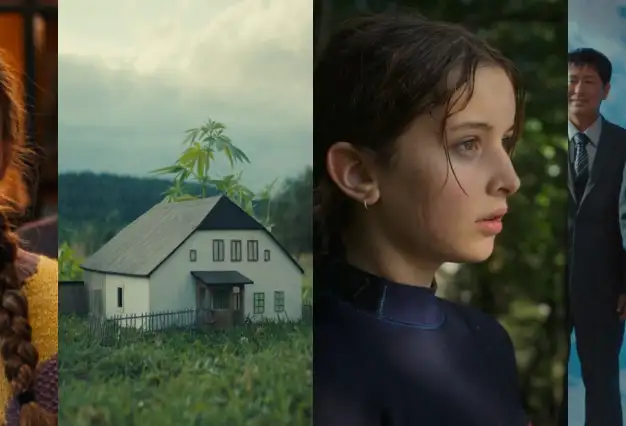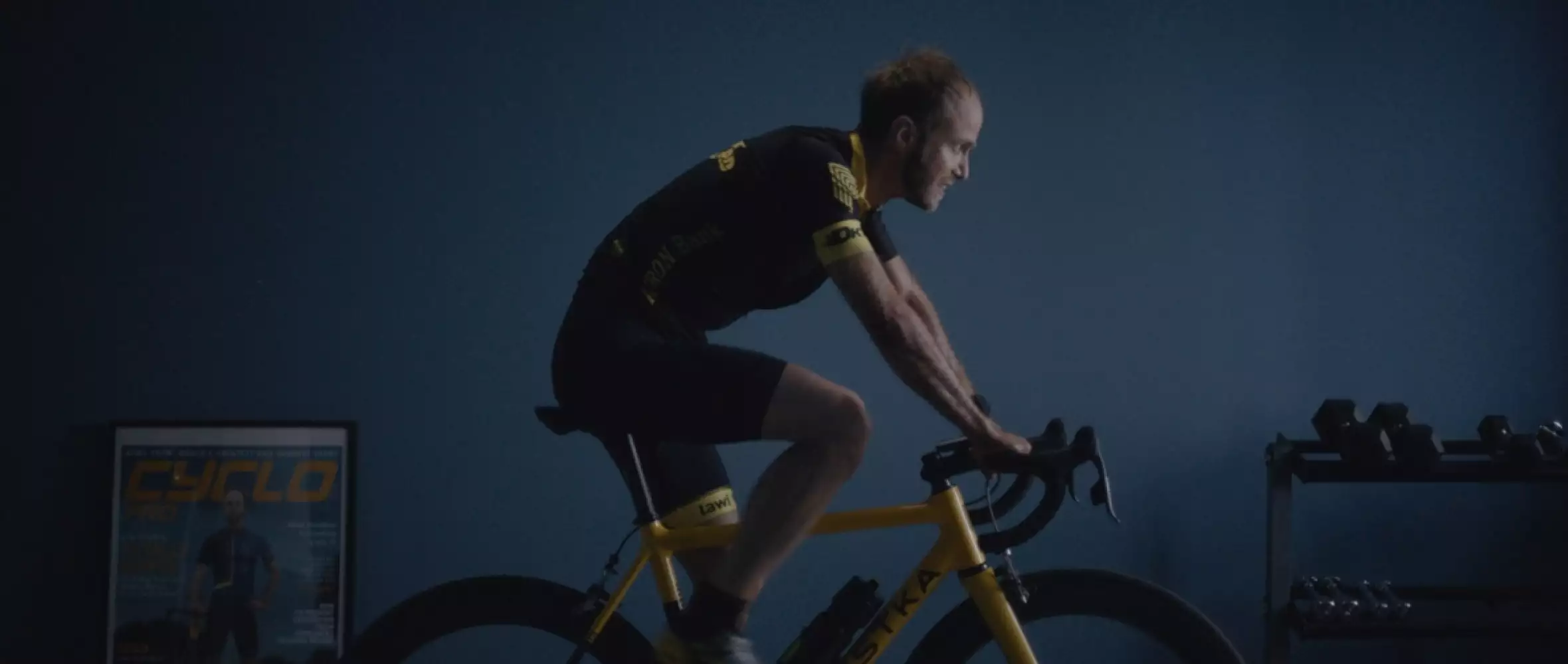
20 June 2018
Adam Sedlák: I Learned That Less Is More
Adam Sedlák: I Learned That Less Is More

Young director Adam Sedlák (b. 1989) is ready to hit the festival circuit with his debut film, Domestique, an unusual story for contemporary Czech cinema. Given the critical success of his web TV series about the millennial generation, The Term, which brought him recognition and two nominations for the Czech Film Critics’ Awards, his first feature is highly anticipated.
The interview by Pavel Sladký was published in Czech Film Magazine / Summer 2018.
Cycling, habits, rituals, and ambitions - these are the elements that define your first feature. Could you briefly describe the story line?
My main character, Roman, is a professional cyclist with a second division cycling team, and like every athlete who longs for success, his life is dedicated to training. Although his role on the team as domestique, whose job is to support the leading rider, doesn’t satisfy him, when his team confronts financial issues, he has to fight even just to keep this role. His own ambitions push him to train even closer to the limits of physical capacity and common sense. He keeps an oxygen tent in his bedroom and the question of possible doping comes into play. Meanwhile his wife, Šarlota, has a completely different goal: she is trying to get pregnant and seeks help through a variety of medicines and home rituals. So each partner is trapped in a spiral of their own obsessions, which, both physically and mentally, gradually deforms them.
The production notes for Domestique describe it as a “civilizational horror.” What is the role of sport in your film?
It provides the basis for the story line and the motivation of the main protagonist, but it could just as well be anything else. For me, though, cycling especially highlights the mechanization and repetition that appear in the story. It’s a great tool for exploring these themes.
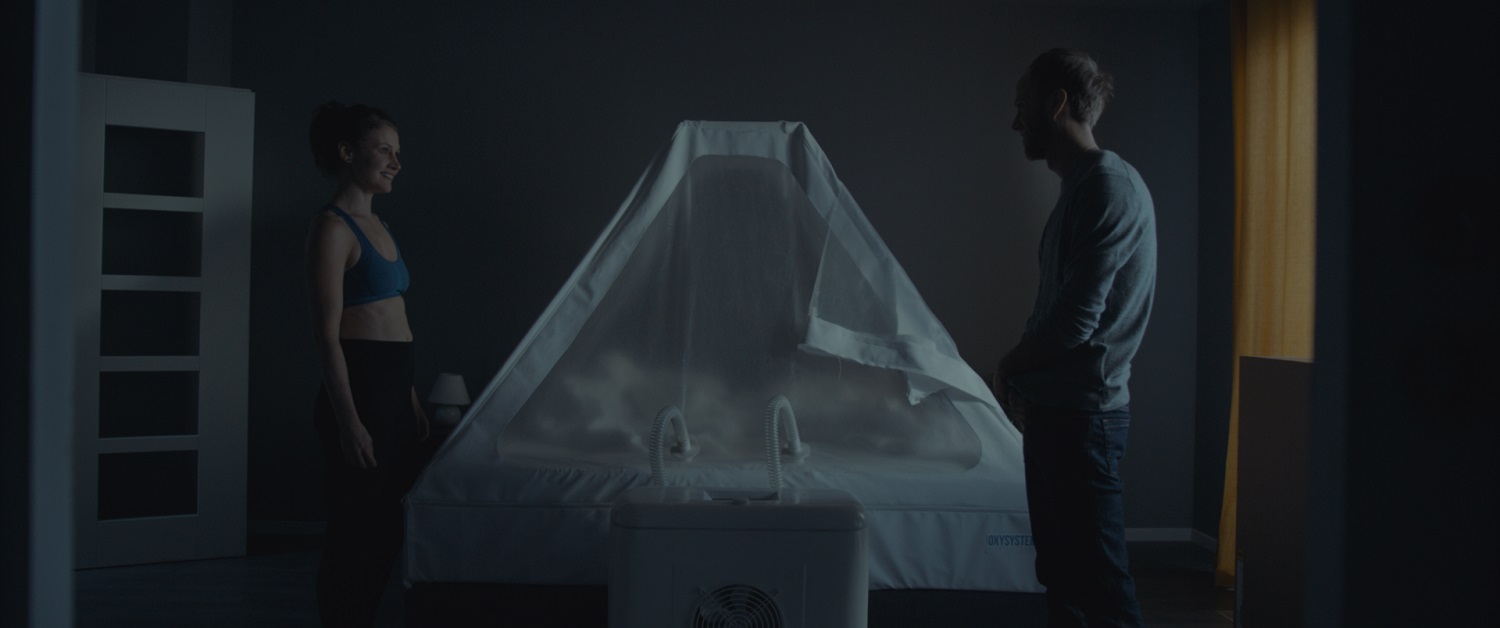
So do you see mechanization and repetition as characteristics or symptoms of our contemporary lives?
In its structure, Domestique could be compared to the fifth episode of my web TV series The Term. I enjoy emphasizing the parts that would be edited out in typical Anglo-American storytelling, that is, the waiting and repetition. That was the challenge: to make a film built on this that wouldn’t be boring; just the opposite, the waiting and repetition are the sources of the tension.
What is your personal relationship to sports and professional ambitions?
I prefer reading about sports to watching or doing them myself, but the lives of top athletes are incredibly interesting to me. They’re completely devoted to the field that they’ve chosen, and i think this fascination and devotion had a great impact on Domestique. It still gets to me. I’m currently thinking about a tennis story that i would like to turn into a screenplay.
In 2015, your screenplay for Domestique won an award in the Filmová nadace (Film Foundation’s national competition). Did you change anything after that, or was the prize enough to ensure that you were on the right track?
I got the award for a second draft of the screenplay; the shooting script was number seven. So yes, it changed a lot.
Could you be more specific about the changes?
It changed a lot at the end of the story because I was looking for different ways to express what I wanted to say. And with each new version, I learned that less is more.
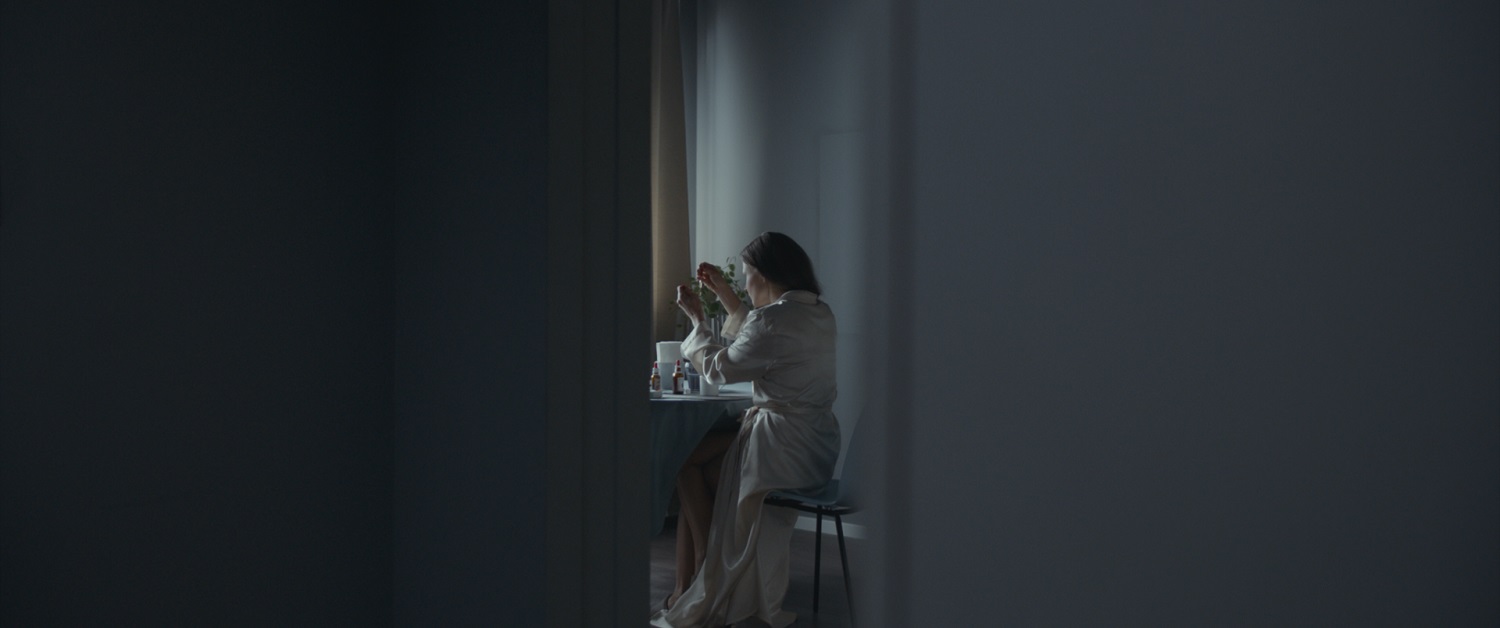
How big is the budget? Where did you and your producer, Jakub Jíra (Shore Points), find funds?
The budget is around €250,000. A large part was covered by the Czech Film Fund, and also Czech Television. It was a bold decision on their part to fund our project, in my opinion. We give them big props for that. Also, Domestique is a Czech-Slovak coproduction, so with the help of Slovak producer Ivan Ostrochovský we got some money from the Slovak Audiovisual Fund.
How did you cope with low-budget filmmaking on set? Did you feel some limits?
Writing the screenplay, I knew if I ever wanted to shoot it, it would have to be low-budget, so I stopped thinking of low-budget shooting as a weakness and started to look at it as a strength. The cramped feeling of the film is conceptual and wouldn’t have worked if it hadn’t been for the limited number of characters and the humble choice of locations. But of course I felt the limits of the budget once we were shooting. I would have appreciated more shooting days. But I assume this is an urge that every director feels, no matter what size the budget is.
You didn’t study at FAMU, which makes a filmmaking career harder in the Czech Republic, doesn’t it?
That’s right. I didn’t study at FAMU, but at FAMO, the Film Academy of Miroslav Ondříček, which is in Písek, in southern Bohemia. No doubt it’s considerably harder for FAMO graduates starting out. But the biggest difference is that in Písek there’s less ambition to make films. The students from FAMo can get jobs on crews and work in all sorts of positions, but it’s much rarer for them to have the ambition to make their own projects.
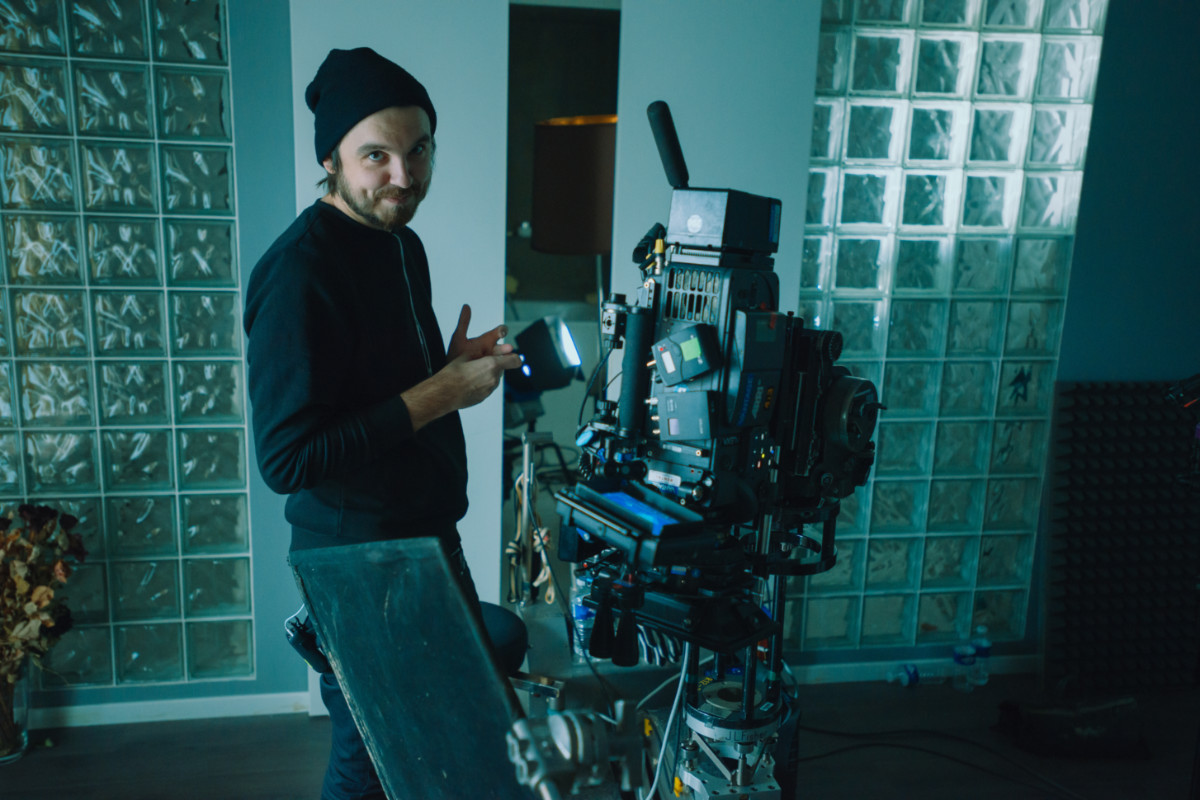
Did the critical acclaim for your The Term web TV series change your career?
Yes. At one point, we got so stuck on funding for Domestique that we made The Term just to take our minds off things. That turned out to be a good idea since the critical acclaim for The Term helped us make progress on funding for Domestique. It was very big for me.
The Term was what you might call a reflective millennial project. It covers six months in a relationship, which viewers see through computer desktops and smartphones, on the characters’ social networks as they multitask their way through their day. It brought a bit of mumblecore into Czech cinema. Now, though, when talking about your feature debut, you mention Roman Polanski. How has he influenced you?
Once, in an interview, I mentioned films that take place in limited space—in a single flat, for example—and Polanski’s Apartment Trilogy came to mind [Ed.: Repulsion, Rosemary’s Baby, The Tenant]. I wouldn’t say I’m directly inspired by them, but there is definitely a connection — with Rosemary’s Baby, for example, though I didn’t find out until afterwards, in the editing room. But Chantal Akerman’s Jeanne Dielman, 23, Quai du Commerce, 1080 Bruxelles was definitely my biggest source of inspiration for compositions, framing, and the simple fact that her film takes place in a single flat and deals with rituals and repetition.


